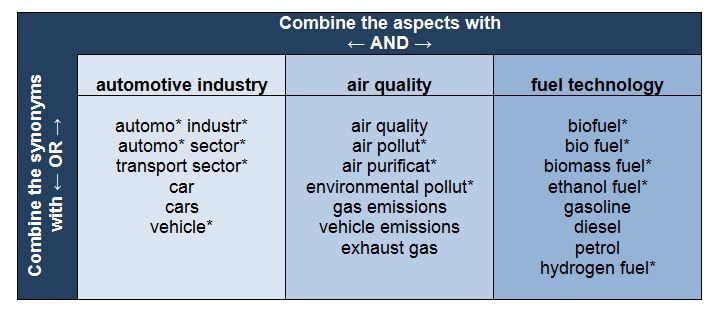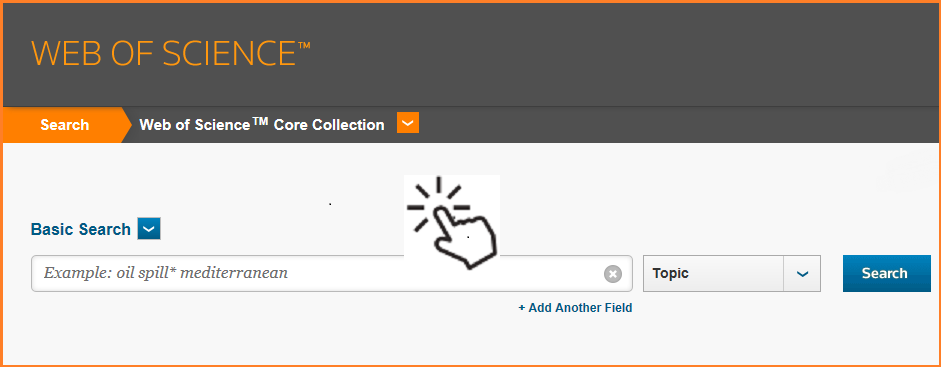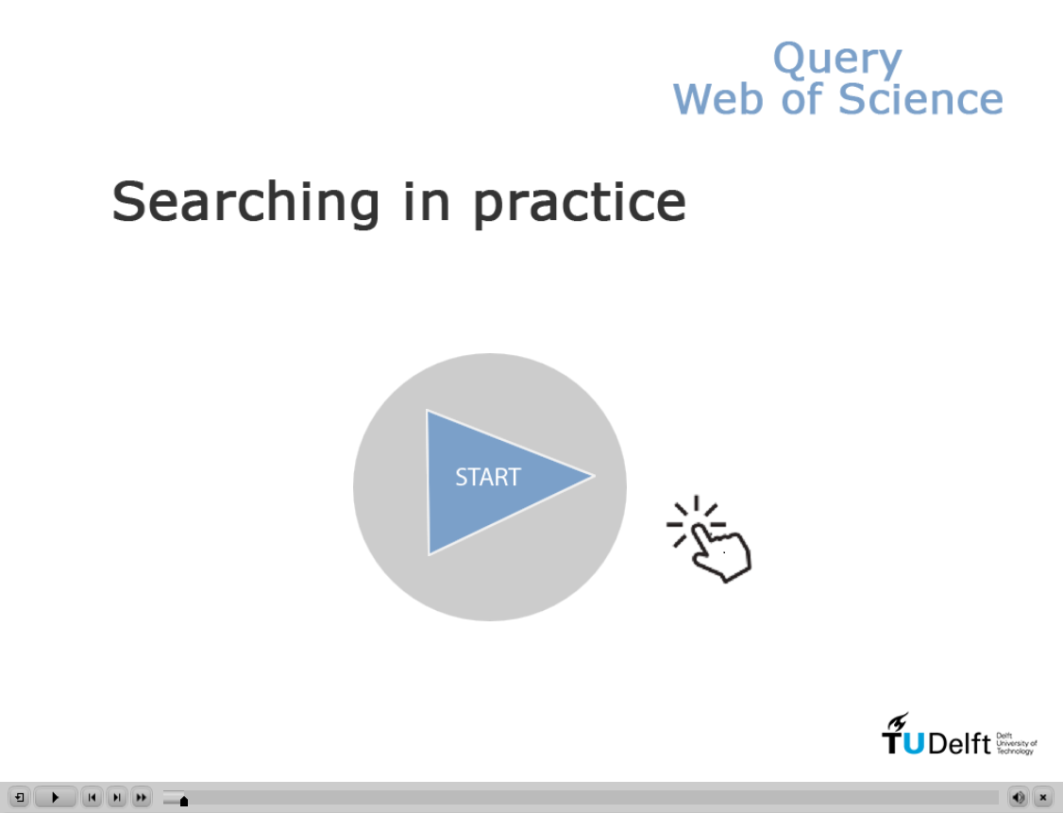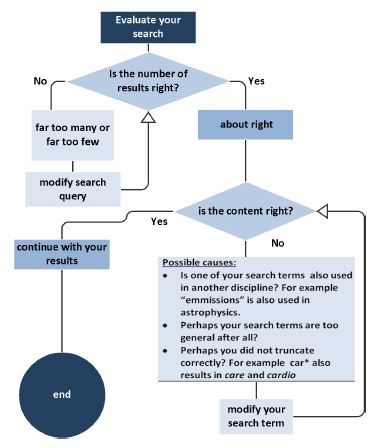Searching
When searching, first search for each of the aspects separately, then combine the queries into a final search query. In this case, you will start with the aspect air quality.
|
Use the database Web of Science for the exercise in the right-hand column*: * Access to "Web of Science" is limited to the IP-range of the TU Delft campus. In order to gain access from outside the campus, you need to download and install the VPN client software: https://www.tudelft.nl/en/it-manuals/vpn-openvpn/ |
|
1 |
Search in Web of Science for the aspect "air quality". Don't forget to use synonyms as well (see the table below). How many results did you find? |

In the exercise above, a good search action will yield many results. Perhaps more than you would like! Don't panic, because:
- The research topic consists of three aspects. Combining the three aspects will bring the number of results down considerably.
- After combining the aspects, you can limit the number of results based on, for example, the year of publication or discipline.
Have a look at this video about combining searches in Web of Science from 2014.
Evaluating your search
|
|
|
2 |
Let's say you haven't found many search results. So what do you do? (tick all correct answers) |





